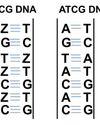
It is very likely that we will heard about the use of CRISPR technology and its great potential for addressing human health issues, as well as it holds the promise for providing solutions for major agricultural challenges. The invention of CRISPR-Cas gene editing in the last decade brought a great revolution in biology, providing researchers a way to make selective and precise changes to an organism's genetic code. CRISPR/Cas9 is undoubtedly one of the greatest scientific advancements of the last 100 years. In 2012, Jennifer Doudna and Emanuelle Charpentier published a peer-reviewed paper discussing the use of CRISPR/CasQ in gene editing. They had just democratised gene editing and changed biotechnology for years to come. The cost also tends to go down significantly with time, as we've seen with numerous molecular biology tools, and CRISPR is no exception. Recent the publications on CRISPR/Cas9 grew over 1000-fold over the last 10 years. Scientists opined it as a new gene editing technology called CRISPR to create genetic mutations in a more subtle way which is faster and cheaper than earlier techniques. It's different from a classical GMO in that we're not adding a genome from another organism,” Gmitter says. In CRISPR we are knocking out a few existing genes. In 2020, both Doudna and Charpentier won the Nobel Prize in Chemistry for their discovery of the genetic scissors. This, coupled with extensive media coverage, has made generalist and specialist investors alike very interested in CRISPR/Cas9 applications especially in the realm of therapeutics.
This story is from the November - December 2022 edition of Scientific India.
Start your 7-day Magzter GOLD free trial to access thousands of curated premium stories, and 9,000+ magazines and newspapers.
Already a subscriber ? Sign In
This story is from the November - December 2022 edition of Scientific India.
Start your 7-day Magzter GOLD free trial to access thousands of curated premium stories, and 9,000+ magazines and newspapers.
Already a subscriber? Sign In

The world's first Super Horse is ready, a miracle of CRISPR-Cas9 technique
Scientists at Argentine biotech firm Kheiron have achieved a groundbreaking milestone by producing the world's first genetically edited horses using the CRISPR-Cas9 technique.

Expansion of genetic alphabet from ATCG to ZTCG in some viruses
DNA is made up of four letters alphabets A, T, G and C. Interestingly some bacteriophages were discovered which possess unusual nitrogenous base Z instead of A in their DNA.

Government Allocates Rs 20,000 Crore to DST to Launch Rs 1 Lakh Crore R&D Fund
Union Finance Minister Nirmala Sitharaman has allocated Rs 20,000 crore to the Department of Science and Technology (DST) to initiate a Rs 1 lakh crore research and development fund aimed at boosting private sector-driven innovation.

Fecal microbiota transplant (FMT)
Fecal microbiota transplant (FMT), also known as stool transplant, is a medical procedure in which stool (fecal matter) from a healthy donor is transferred into the gastrointestinal tract of a patient.

Solar-powered device captures carbon dioxide from air to make sustainable fuel
Researchers have developed a reactor that pulls carbon dioxide directly from the air and converts it into sustainable fuel, using sunlight as the power source.

The Hidden Brain in Gut- How microbes shape our cognition and behaviour
The idea that the bacteria in our intestines could affect our thoughts may seem like science fiction.

Top 10 Indian Science Stories 2024
In 2024, science and technology witnessed groundbreaking advancements. Notable achievements included the successful launch of space missions to Mars and beyond, as well as major strides in artificial intelligence, with AI models becoming more integrated into everyday life.

Ancient Europeans ate the brains of their dead enemies 18.000 years ago
Researchers have uncovered startling evidence that ancient Europeans practiced the ritual of consuming the brains of their fallen enemies as far back as 18,000 years ago.

2025 begins with the warmest January ever
January 2025 has officially been declared the warmest January on record, underscoring the relentless rise in global temperatures.

Top 10 Indian Science Stories 2024
India has made remarkable strides in science and technology in 2024, marking an exceptional year for innovation and research.